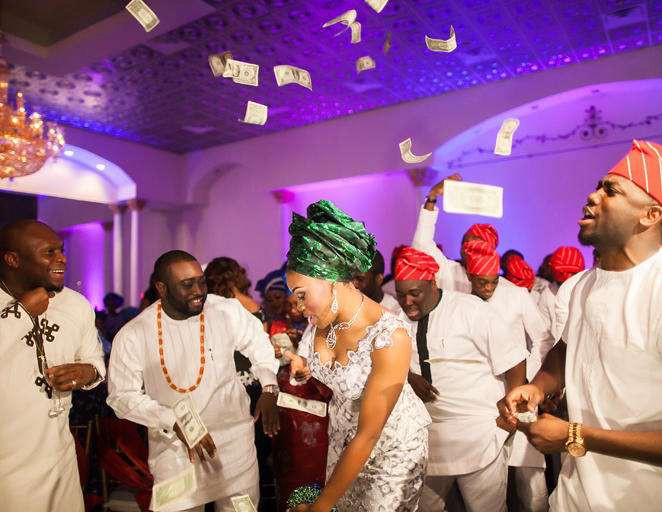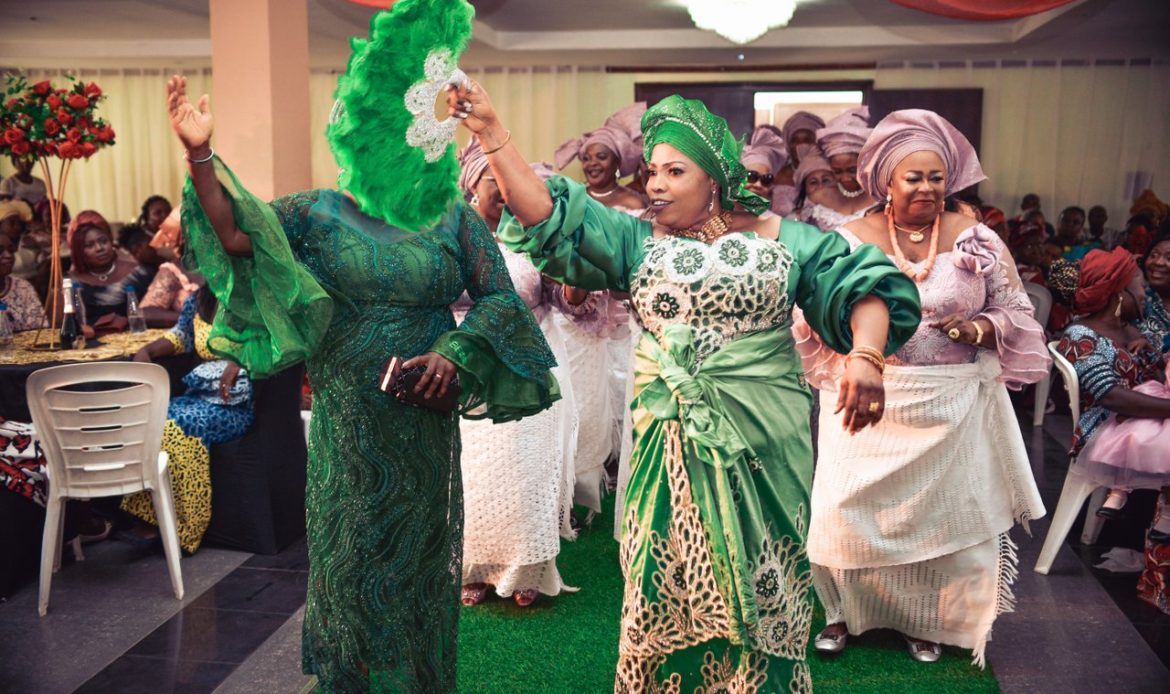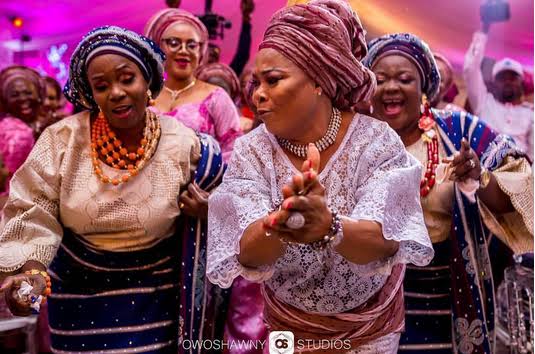The Nigerian Owambe Tradition

For a culturally diverse country like Nigeria, social events are one of our most unifying factors. Owambe parties are elaborate events that were initially hosted by the Yoruba people of Western Nigeria. Owambe successfully bring people from different cultural backgrounds together, to share happiness, food, dance, and music. These events are organized to celebrate weddings, birthdays, naming, coronation, installation and house-warming. Today, no weekend in Nigeria is complete without an Owambe party. Some things are common with Nigerian Owambe parties – here are some of them.
Aso-Ebi Tradition

Owambe welcomes several guests grouped according to their aso-ebi, a series of matching outfits worn to make the event colourful, and sometimes for identification. The aso-ebi could include Ankara, Aso-oke or Lace material. Aso-ebi tradition is an interesting aspect of every Owambe. It especially determines the benefits you will enjoy from a party. There is a popular saying “O wo ankara, o je semo” which translates to “If you do not wear ankara (or aso-ebi) you won’t get semo”. Guests without aso-ebi might miss out on a lot of treatments including special delicacies, drinks and souvenirs.
Owambe Attractions
Owambe celebrations are usually expensive, partly because every guest wants to look their best. The use of gele (female headgear), fila (men’s cap), shoes to match, bags, and graceful pieces of jewellery are parts of the intriguing aspects of an Owambe party. Features of a well-planned Owambe includes the aso-ebi “geng”, indigenous music (Fuji, Juju, Apala and Highlife), money spraying, souvenirs, photography sessions and varieties of food and drinks.
Jollof-rice and Amala
Food is no doubt an important aspect of every Owambe party, especially the jollof rice. Some Nigerians even claim that the success of a party dwells on the taste of the jollof rice. The jollof rice is mostly served with beef/chicken, Moi Moi, salad and sometimes with fried rice. Yummy! Other in-demand Owambe meals include Amala and Ewedu, Semovita, and Pounded Yam /Poundo. Recently, Ewa-agoyin (a special preparation of beans), grilled fish/meat and small chops have found their way to the hearts of many Owambe lovers.
Read Also: The Origin of “Iyawo”, the Yoruba Word for Wife
Mogbo Moya
An interesting or perhaps funny aspect of every Owanbe is the Mogbo Moya (uninvited guests). These sets of people wear contrasting outfits/colour codes mainly because they were neither invited nor close to the celebrants.
Preparation and Party Time!

Hosting a successful Owambe often take weeks or months of preparation, depending on the kind of celebration. A typical Owambe in Lagos State, Nigeria could hold for two to three days. Wedding for example take two days; the first day for the introduction/engagement and the second for the white/Islamic wedding and reception. Owambe burial ceremonies are celebrated based on tribe or traditional demands. People from the East/Southern part of Nigeria for instance are known to hold burial celebrations for three to seven days, based on the age and status of the deceased. Regardless of how long the event holds, organizers ensure that guests are left satisfied, telling juicy tales of how the event went down.
The atmosphere at an Owambe can hardly be ignored. The colour, glamour, and excitement are experiences most people look forward to. Apart from the delight of attending an Owambe party, they offer opportunities for people to relax, network, socialize, meet and celebrate with family and friends.
Tell us about an interesting Owambe event you attended recently.
